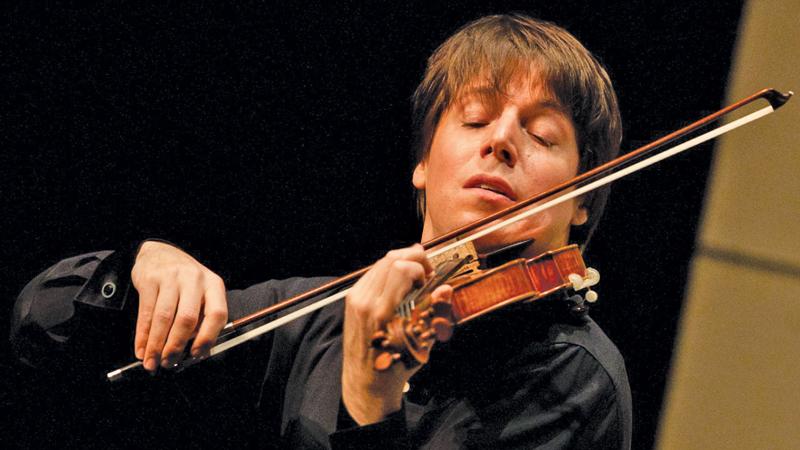Some years ago, a friend of mine attended a master class given by an internationally renowned violinist. After showing a student some ways to improve her sound, he asked, “Why is it important to have a beautiful tone?” The answer seemed so obvious that the student just looked puzzled. “Because the better your tone, the more …” and then he rubbed his thumb, index, and middle fingers together in the universal sign for money.
By that criterion, Joshua Bell ought to be one of the richest violinists around today. Even among the top tier of classical violinists, his tone stands out. It is so luminous, opulent, and sumptuous that more common adjectives are inadequate. It is the sound of sunlight. From his low open G, where no vibrato is possible, to high harmonics on his E string, fingered so close to the bridge there’s barely room for his bow, every note is alive.
But tone alone does not a musician make. There’s the myriad of techniques to master, the imperative for impeccable intonation, and, above all, the intelligence needed to communicate through the music. Bell is remarkable here as well. Whether playing the Tchaikovsky Violin Concerto, music for the film The Red Violin, or Edgar Meyer’s Overture for Violin and Orchestra, Bell’s profound musical intellect illuminates everything he plays.
Bell is well versed in every period of classical music, from Bach to Barber and beyond, but when he returns to Ann Arbor for a recital at Hill Auditorium on February 10, he’ll focus his program on three pieces that span the evolution from classical to modern. Mozart composed the Violin Sonata in B-flat Major in 1784–in one day! It is late Mozart, and what composer created a better balance between pure emotion and mathematically precise construction? Schubert wrote the Fantasy in C Major in 1827 only a year before he died at the sickeningly young age of thirty-one. He composed it for a virtuoso of his day, and it is not for the faint of heart, especially at the tempos Bell and his accompanist Sam Haywood are likely to take it. Richard Strauss lived to a ripe old eighty-five, longer than Mozart and Schubert combined, and helped usher in the transition from the Romantic to the Modern period. The Violin Sonata in E-flat Major (1887-1888) is the last he wrote in the form that Mozart helped perfect more than 100 years earlier.
Of course, there will be the inevitable encores, the sonic stage fireworks that will prompt complementary explosions from the house. In 2007, at Hill, Bell’s announcement prior to playing Rachmaninoff’s Vocalise elicited an audible sigh of pleasure from the audience. And the end of Sarasate’s Introduction and Tarantella propelled us out of our seats as though we’d been shot from cannons.
